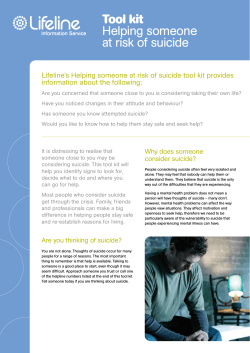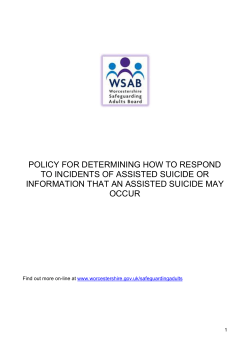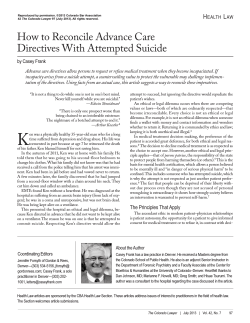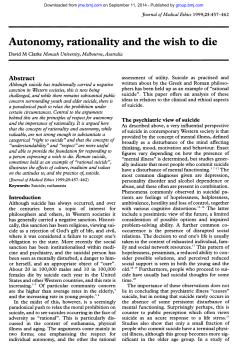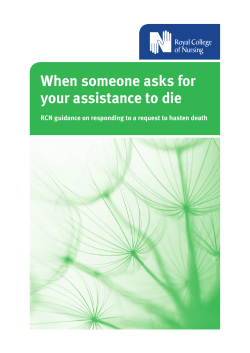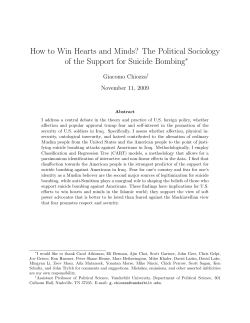
I How to Ask Girls to Homecoming
Time 165 E. Bagley Road - Berea, Ohio 44017 November 2013 Issue King Dan Sates Queen Jamella Hunter All homecoming court photos courtesy of Dave Cornelius. Tayler Reese, 11 Sophomore Attendents: Taylar Diver Joey Bachie Cassidy Lavelle Alex Dargay Jacob Fudale. Junior Attendents: Stacey Alderman Steven Bachie Tayler Reese Kenny Sladick Ryan Queen, 12 Stacey Alderman, 11 Brianna Kalnasy, 12 Senior Attendents: Cate Hill Eddie Harper Brianna Kalnasy Carrie Mueller Alex Brown Hayley Novak Ryan Queen Claudia Sladick Dylan Nguyen Amber Videc Tate Biddinger Kenny Sladick, 11 Eddie Harper, 12 Tate Biddinger, 12 The Historic Royalty of BMHS Homecoming Court Cate Hill, 12 I period, they put on the kiss Harshman added. t’s that time of again! Even though his BMHS Homecoming is cam [on us]. The team mascot behind us held up a sign girlfriend didn’t realize right around the corthat read, ‘Alyssa, Will You what was going on, Harshner. Boys, you better find man said that after she a date and a way to ask that Go to Homecoming with got out of the car, she said Me? –Mike’,” Early said. special someone! “yes. Early said that his “[Being asked in a Sometimes, you special way does] matter to girlfriend, Alyssa, saw don’t have to go too far them on the JumboTron me…I want him to come out of your way to make it and started smiling. He up with his own idea that special. said she turned around to makes me feel like he put “If it was just a read the sign and said, “Of a good amount of thought friend, I would just ask. If into it to show that I’m spe- course I will!” it was a girl [that] I like, I cial to him,” would get chocoSophomore late and flowers,” Angelica Thompson said. Rahe said. Guys don’t Junior sweat too much. Liz Skok has Not all girls will a different turn you down if point of view you don’t ask them than Rahe. in a special way. Skok says that “[It] debeing asked pends who it is in a special honestly. Like if way does they did it in front not matter to Junior Michael Early surprising asked his girlfriend to homecoming over the of a large group of her. Either Kiss Cam at a Lake Erie Monsters Game people, I would [say way, no mat- Photo courtesy of Michael Early yes] because it would ter how she be really rude and mean… “Seeing her smile gets asked, she would still but I would like to feel and feel special at the end go with that someone. It special when it’s something of it made it worth the would be a plus if that that only happens once a hassle and effort in the someone knew that food year,” Rahe said. end,” Early said. was the fastest way to her Don’t feel too bad Junior Mitchell heart. about yourself if you get Harshman said that he “Well since tacos turned down. Thompson asked his girlfriend to are my favorite food, I said that it would be unforhomecoming in the Roehm would want to be asked tunate to get turned down, with a party box from Taco Athletic Complex parking but he would ask someone lot in the morning as they Bell,” Skok said. that he has a greater chance Some guys take the arrived for school. “I made three signs, with. However, Thompson more traditional route. said that it’s not too imporone asking her to home“I’m a classy guy. tant to go with a date. Alcoming, one saying yes [I would bring] a bouquet though, he added, it would and one saying no. Then of flowers and ask if she be nice to have one. [would] go to homecoming [two friends and I] went Having a date to school early the next with me,” Junior Tommy shouldn’t stop anyone from morning to Roehm. I set Thompson said. up the ‘yes’ sign in the first enjoying this once-a-year Some have already event. Going to homecomparking spot and the ‘no’ put their creativity to the ing with a group of friends sign in the second parktest. Junior Michael Early could be just as fun. ing spot,” Harshman said. asked his girlfriend to “[Not having a date] “She pulled up 15 minutes homecoming at the Lake doesn’t really matter to later and pulled into the Erie Monsters game! me as long as I go with the third spot where there was “[My girlfriend], no sign. I was kind of em- people I love and will have Alyssa, [and I] went to the barrassed… [I wish it was] a good time with,” Rahe Lake Erie Monsters game said. more noticeable for her,” and during the second Claudia Sladick, 12 By Tayler Reese Assisted by Michelle Lee BMHS Crowned Their First Homecoming King and Queen Carrie Muller, 12 How to Ask Girls to Homecoming Titan Times 2 November 2013 Save Your Skin, Spray Instead By Jodie Waldron Assisted by Cristina Ortiz A Hunt and Kinnaird assist some anxious Titan football players before practice at the Roehm Athletic Complex. Photo courtesy of Michelle Lee BMHS Trainers Go From the Sidelines to the Spotlight By Michelle Lee Assissted by Taylor Reese W hether it’s a fall Friday night under the lights waiting for kickoff, or a winter game-time tip off for basketball, a lot of preparation goes into being ready for that moment. Athletic trainers are at the heart of it all. Here at BMHS, two athletic trainers, Jess Hunt and Beau Kinnaird are always active and present at all home sporting events. According the the National Trainers Association, the job of a full time trainer is to maintain general treatment orders to be reviewed by the teams physician. Jess and Beau fulfill this role and also act as a connection between family physicians and specialists. “To find my job I looked on the OATA website and found an opening and applied for it at South West. I knew I wanted to do have a career and do something in sports or be on TV. I didn’t know when I was in my communication major that news reporters had to write their own script. Therefore, I decided I should go into something with sports,” Hunt said. Kinnaird said he chose this field “because I wore glasses and I was too small, I couldn’t play football in high school. I decided that I wanted to become the athletic trainer.” As football season is coming to a close and basketball is quickly approaching, Kinnaird and Hunt are preparing themselves for a different kind of training. “The difference between getting ready for football versus basketball is that there are more kids for football. Football has a longer pre-season. Basketball is so much different, it doesn’t require as much maintenance, supply and of course it’s inside,” Hunt said. “Obviously football has more numbers and all the kids workout throughout the summer. For the kids who do not work out through the summer and just come and go, their fitness level is different and those are the kids who usually get injured,” Kinnaird said. Hunt said that picking between football and basketball season is like choosing between your children, they both have their ups and downs. Kinnard said that he prefers basketball when it rains and that more injury happens in football. In basketball, players mostly hurt their ankles, knees or wrists. But in football any bone can be broken and anything from a concussion to a cardiac arrest can happen. Being around the kids all the times makes for special bonds to form and many amazing memories between everyone. “The most rewarding thing about my job is when people are glad and happy to see you. Knowing that you can make someone’s recovery better is the best feeling,” Hunt said. Kinnaird said that helping guys who want to help themselves get better is the most rewarding thing about his job. Hunt and Kinnaird don’t do it all alone though. Seeing them on the sidelines has inspired students to be actively involved in student athletic training. Sophomore Hannah Arnold said that she wanted to help out and be apart of sports and she wants to go into sports medicine. Her favorite part is being in the environment and being around all of the great people. “Just being able to help as much as possible is my favorite experience,” Arnold said. BW student Frank Demarino also helps on the sideline for the 2013 BMHS football season. “I knew one of the trainers and I thought it would be cool to learn a few new things,” Demarino said. Demarino says that forming new friendships with all the guys is the best part about it. When people attend Titan sporting events they always see Hunt and Kinnaird on the sidelines helping as much as possible. Their job to make sure everyone is properly equipped and full of hard work. Next time you’re at a Titans sporting event be on the look out and always feel free to give them a smile and a friendly thank you. s homecoming season approaches many girls feel the need to attain a faux sun kissed glow. Tanning can be very controversial because of the controversial skindamaging effects. Using tanning beds can be harmful to the skin because of the harsh ultra-violet [UV] rays that many teen girls are unaware of or do not take seriously. In doing so, they put their lives at risk. Skin cancer can take many years to develop. The International Agency for Research on Cancer [IARC] recommends banning commercial indoor tanning for those younger than 18 years old to protect them from the increased risk for melanoma and other skin cancers. “Girls want to look good for a dance because it’s a once a year thing,” Junior Cassidy Squires said in reference to tanning. Head Librarian Mrs. Scriven has never been a fan of tanning beds, she thinks that they are dangerous to the skin and can ruin both the collagen and elasticity. In the state of Ohio a person under the age of 18 must have a parent’s signed consent to go in UV tanning beds. “They do not agree with tanning,” Senior Maria Carney said when asked about her parents opinion of UV tanning beds. Carney has never been in a tanning bed and does not plan to. Squires says that her mom signed her up for tanning because she has lighter skin; when they go on vacation she burns easily if she does not have a base tan that she can achieve by using UV beds. However, WebMD.com author Katherine Kam cautions against this thinking. “[People must] remem- ber to keep using sunscreen with an SPF of at least 30. Dermatologists say that many people mistakenly believe that their newly bronzed skin will protect them from sunburn and sun damage,” Kam said. According to the FDA on WedMD.com, “Sunlamps and tanning beds promise consumers a bronzed body year-round, but the ultraviolet (UV) radiation from these devices poses serious health risks.” Kam agrees with the FDA as stated in her WebMD. com article “Sunless Tanning: Baking Is Out, Faking Is In.” She said, “There’s a better way to get that golden glow. Fake it. Bronzers and sunless tanners are safer and faster and can achieve results that are just as beautiful as the real deal.” Scriven thinks that depending on the purpose spray tans can be good, especially for girls that are going to dances. Many girls worry about spray tans making them orange. “I feel like spray tans can be quick and turn out bad and streaky,” Squires said. According to Kam there are two general types of sunless tanning products to choose from such as “cosmetic bronzers that wash off like regular makeup and sunless tanners that actually stain the skin and fade as skin cells slough off.” Even research and warnings do not keep some people from using tanning beds. Scriven has a great idea to make tanning less desirable when getting a bronzed look. “Tanning is a luxury, which makes it taxable,” Scriven said. If possible skin damage, and even cancer, will not make people stop tanning than maybe shelling out more money will. 2103 Midpark Graduate, Maria Lee, sports her spray tan before her senior prom. Photo courtesy of Michelle Lee Titan Times 3 November 2013 Why Athletes Need Superstitions Athletes talk about their strange and interesting habits By Adam Poschner Assisted by Chad Ellis of superstitions that these athletes can have, and some seem uperstitions are very common with both high more strange than others. “I have a couple suschool and professional athletes. They provide a sense perstitions, but my biggest one is what I eat the day before of routine and comfort that can ultimately help them per- and the day of a cross country form in their respected sport. meet,” Senior Miranda DiBi There are many types asio said. “The day before I have to eat some form of pasta for dinner and I drink two bottles of water before bed. The day of the meet I always have to eat a bowl of Wheaties with bananas,” DiBiasio said. Some people Miranda DiBiasio about to take a big bite of her pre-event might breakfast find it strange Photo courtesy of Miranda DiBiasio for athletes to S do the same thing over and over for their sports, especially when it would seem that it would not perfect their performance. Mr. Kosar, BMHS psychology teacher, said, “With such pressure on athletes to peform well they will look for anything to give them an edge over their competition. And if they find a routine, a good luck charm or a pre-game ritual they will feel forced to repeat it in hopes of performing well. Forcing a relationship between a superstition and performance is basically a confirmation bias of the athlete. In other words, he/she is trying to make something out of nothing.” These superstitions are just mentally helpful to an athlete, and many times it puts them in a comfort zone that they believe allows them to perform better. “Whenever I wear my lucky earrings with my uniform I always seem in sync. They give me a sense of consistency when I bowl,” said Junior A.J. McCullough. Many of these superstitions come from past experiences. Senior Marcus Ruiz has always had the same intricate meal ever since 9th grade. “The meal started freshman year when my mom packed it for me. That game we destroyed Parma and I just started having the same meal before every game since then,” Ruiz said. Kosar explains that superstitions with athletes are simply what is called an illusory correlation. Where the two variables, an athlete’s superstition and their performance in a game, are not actually related but still offer them with a sense of security. Some of the best athletes in the world have superstitions that are very surprising to most people. According to the article “10 Most Superstitious Athletes” by Ryan Murphy, tennis star Serena Williams always brings her shower sandals to the court, tying her shoelaces a specific way and bouncing the ball five times Why Cheerleading Is A Sport before her first serve and twice before her second. She will even wear the same socks during a tournament run. Murphy also states that NBA star Jason Terry wears the shorts of the opponent the day before a game and he always eats chicken before a game. One of the more interesting superstitions, according to Murphy, belongs to a UFC fighter named Lyoto Machida. Every day Machida drinks his own urine, saying that he believes it has medicine in it that cleanses his body. Many high school athletes and professional athletes have similar superstitions, while some are just out of this world. One common factor that they all have is that their superstition helps them feel comfortable and relaxed. Without these quirks and routines many athletes will feel out of place. “Like the sports fans commercials say ‘It’s only weird if it doesn’t work.’ If the athlete feels good knowing he/ she has their lucky socks on, then go for it!” said Kosar. What It Takes To Be A Competitive Cheerleader By Jacqueline Tecco Assisted by Carrie Mueller R ecent controversies over whether cheerleading is a legitimate sport has many wondering exactly what it takes to be a competitive cheerleader. These cheerleaders have proven themselves to be real athletes over and over again through their physical ability, tough criticism from their coaches or judges and the fact that they compete against other teams to win. Cheerleaders are required to practice their routines multiple times just to get them perfect and participate in conditioning drills just like any other type of sports team. Senior Brianna Kalnasy hitting her single leg stunt at a compeition Photo courtesy of the Kalnasy family “The hardest part of cheering on a competition team is remembering all of the little things and making sure your moves match up exactly with the rest of the (cheer) squad,” BMHS cheerleader Emily Vulpio said. Competitions can get really stressful for participants due to the range of tough scoring and expectations placed upon them. Teams compete at smaller competitions to try to get a bid at the Worlds Championship held in Orlando, FL. each year. “(To be an elite competitive cheerleader) It takes a well rounded cheerleader with great tumbling, stunting, and jump skills,” all-star competitive cheer coach Dee Haase said. Despite misjudgments by uninformed others, the girls that take part in the events all would agree with each other that what they do should most definitely be considered a sport. Vulpio said that she considers competitive cheering a sport because of the many skills and endurance needed to be successful in the activity. Both the coaches and cheerleaders put in a large amount of effort in their teams to achieve every goal they strive for. Whether its winning a single competition, going to the World’s Cheer Championship, or even simply improving as a team altogether, the ones involved put in the hours and cash to be able to achieve what goal they are aiming for. “For my team, my goal for them is to win because they deserve it with all the work they have put into their routine while balancing school, work and a life at home,” BMHS competition coach Dani Lee said. Not only do cheerleaders have to consistently work hard, but teams have to abide by specific rules while competing. Such rules can lead to total elimination from a competition or cause drastic decrease in final score values, which can be a devastating crush to a team’s spirit. Ultimate Athletics coach Haase said that allstar cheering is governed by USASF rules and includes strict limitations on tumbling, stunting and safety concerns. Competitive cheerleading can be a difficult and very dangerous activity to participate in. It has been found that 60 to 70 percent of girls injuries in high school sports are accountable through cheerleading. Although the risk may be considered a steep one, girls still find enjoyment in being apart of such energetic and supportive teams. “What I love most about cheerleading is being together with a great group of girls and being able to represent the school in a positive way,” Senior cheerleader Brianna Kalnasy said. The Ultimate Athletic cheerleading squad poses for their first picture together for the 2013-14 season Photo courtesy of Dee Haase Titan Times 4 November 2013 How to Save a Life: Preventing Teen Suicide By Stephanie Schwarten Assisted by Lucy Keating T eenagers are faced with a lot more stress than they used to be due to schoolwork, jobs and the question of what they’re going to do with their futures looming over their head. They are also now expected to be in-touch with everything happening around them at all times and face more chances of bullying because of social media. With this rising stress, it’s not surprising that the teen suicide rate has also risen and something clearly has to be done. “So many lives are cut short because of suicide and it is so immensely important that we do all that we can to decrease the lives lost,” Emma Nagy, president of the Suicide Prevention Education Alliance (SPEA)’s Youth Advisory Board said. Although many people don’t talk about suicide, it has become a huge problem among teens. In fact, suicide is the second leading cause of death among ages 15 to 24 and according to the Ohio Department of Mental Health, over 20 percent of high school students have seriously considered suicide. “Often times, individuals are embarrassed by having depression and feel there is a stigma of having a mental disorder or seeking counseling,” Nancy Ghali, counselor at Strongsville Psychological Services said. “They may feel ashamed or weak because they cannot manage their symptoms on their own.” In order to decrease the amount of deaths due to suicide among teens, misconceptions and the stigma surrounding suicide and depression need to be cleared up. So long as these exist, most people will not be able to recognize or take early signs of suicide seriously and only realize what is wrong when it’s too late. “Creating a knowledgeable society is the key to preventing suicide,” Nagy said. Jenny Burke, Trustee for SPEA, noted that some misconceptions regarding the subject are that those with depression or thoughts of suicide are just looking for attention or simply need to give it some time to get better. “Wrong, wrong, wrong!” Burke said. “Never ignore it when a person says he or she is having thoughts of suicide … clinical depression requires treatment and often if depression is untreated it will get worse.” Before people can be treated for depression, they and those around them need to be aware of the symptoms and what to do about them. Some symptoms of depression include a persistent anxious or empty mood, change in appetite and feelings of hopelessness or desperation. “Suicidal thoughts often occur when an individual feels that their life is unbearable and that there is no hope that it will ever get better,” Gahli said. Once people are able to recognize these symptoms in others or themselves, they then need to assess the danger of the situation. They can do this by asking questions such as ‘Do you have a plan to die or take your life?’ or ‘Do you ever feel so badly that you think about suicide?’ “If there is immediate danger of suicide, stay calm, do not leave the person alone and call for help – dial 911,” Burke said. “If there is not immediate danger, but you have concerns that someone is depressed, seek out the help of a trusted adult.” Once this is done, what an average person can directly do to help then is offer hope and encouragement. Those going through depression and thoughts of suicide will not always feel this way and can get better with treatment. SPEA has traveled to over 132 Northeast Ohio Schools and taught over 114,000 students about these signs and the steps to Always be on the lookout for friends who need a little support. Photo courtesy of google.com take when they are recognized. However, many people are still unaware and misinformed, allowing suicide to still be a major problem not just in Ohio, but throughout the nation. “A good majority of my peers aren’t aware at all,” Senior Kayleigh Berendt said. “I feel like they belittle it, when it’s actually a huge problem.” In the end, it is up to everyone themselves to take suicide and depression seriously and to learn how to recognize it and take steps to prevent it. “Would you ignore asthma or diabetes? Of course not!” Burke said. “Nor should depression be ignored.” Learning About a New Culture: AFS Students Take The Challenge By Ilaria Raguso Assisted by Maria Carney A ugust 6, 2013 was a long, hot day for the almost 600 Italian teenagers who were waiting in line at the Rome airport. They were nervous, yet excited, about beginning the next year of their lives in a new country with a new family and new surroundings. These teenagers are all members of the American Field Service (AFS) program and chose to spend a year away from their own homes to experience the world from another country. “I came here in the U.S. because I wanted to learn more about the American culture, and I am still learning. I love being here, everything is so beautiful and new to me,” Senior Alberto Dutto said. Dutto is from Italy and is currently living in Akron, Ohio. “I have a lot of new friends. We go to football games together and I am having a lot of parties. People love Italians,” Dutto said. Learning about a new culture as a foreign exchange student requires total immersion in a new country with a new language. Being a member of a host family allows AFS students to learn their culture and learn even more about themselves. They not only learn a new language, but they make lifelong relationships too. Dutto said that his experience is going really well. He is happy about his decision and he loves the U.S. He also doesn’t want to go back to his home country of Italy because he loves the U.S. and his host family. “I think that the American culture is different from the Italian one. For example everything here is bigger and the mentality of the people is completely different. Here in Ohio people are funnier and friendlier than Italian people,” Dutto said. Behind this “journey” there are many people working hard to ensure all AFS students and host families have a good experience. “I like being an AFS Liaison when things are going well between the student and the family and the student is adjusting well. When things are not going well it is emotionally stressful and upsetting for me as I want everything to go well for the family and the student,” Liaison Jonette LaPalomento said. La Palomento is retired, she worked as a business to business sales manager and sale representative selling office products. Volunteers are also involved in some mandatory activities with the students. LaPalomento said that she has many responsibilities related to AFS that are mandatory. As an example she must legally submit reports monthly on how the student and the family are going and those are sent also to the department of state and eventually to the corresponding agency in the student’s home country. “As fun activities we do tours in some museums, trips and stuff like that. I grew up in New York City, but I have lived in Cleveland for the last 34 years. I love Cleveland and feel it is a treasure trove of culture that most Clevelanders rarely take the time to enjoy and that is why I like to share it,” LaPalomento said. Studying and living abroad is a great, life-changing achievement in each AFS students life. “I believe the total experience enhances that student’s strength of character, makes the student even stronger emotionally and gives the student an incredible sense of accomplish- Giovanni with his host family in front of Mount Rushmore. Photo Courtesy of www. intercultura.it ment, self-worth and empowerment,” LaPalomento said. Host families are also involved in this great experience. “Hosting a student is a wonderful experience. It makes you learn how the other countries are and you learn to be a citizen of the world,” host mother Lisa Cistolo said. Cistolo would even allow her own children to become AFS students “I absolutely would permit my kids to try. Being an exchange student is challenging and teaches you to be patient and to improve your self-control in difficult situations. People have to be brave to undertake these kind of experiences. You need also to be a self-controlled person and be ready to accept anything that is offered to you,” Cistolo said. Also the student’s parents are important, because they allow their child to leave home and live with another family in another country. “This is a great opportunity to learn more about ourselves and the world. My reason to send my daughter overseas was to help her to reach her dreams,” Italian Mom Arcangela Tarricone said. Titan Times 5 November 2013 Balancing the Scales of School and Work By Lucy Keating Assisted by Stephanie Schwarten W ake up: 6 a.m., then school: 7 a.m.-2:30 p.m., followed by work: 3:30-8 p.m., and closing the day with homework. Fill in the blanks with eating and trying to have somewhat of a social life. This typical day in the life of a working high school student is obviously overcrowded and easily overwhelming. Once a job is added to the mix, falling behind becomes almost inescapable. But for those who are able to set priorities and manage their time, being a working student is just another step towards independence. [who “Students have jobs] learn about commitment and responsibility,” Guidance Counselor Sarah Kolis said. She also explained that having a job teaches students balancing of finances and time management. Whether you learn or not, experience from having a job is not an easy task, especially when you have more than just that on your plate. “I find myself having to budget my time more wisely, picking and choosing what I need to do, rather than just what I want to do,” Junior Hallee Maver said. She also finds herself being frugal with her money, and thinks learning how to deal with finances early is a positive to having a job while in high school. “I’ve gained social skills and money-saving tips, I’ve learned the difference between wants and needs,” Maver said. Balancing a job and school sure seems to be a challenge; some opt out of having a job to focus their main attention on school, but is this a better choice? “With all the AP classes I’m taking; alongside extracurricular activities, and needing time to relax on my own, I do not believe I would be able to balance a job and school right now,” Senior Stephanie Schwarten said. Schwarten stays balanced by doing assignments ahead of time as much as possible, leaving her to do things she enjoys without having to worry about homework. She hasn’t seen any of her friends fall behind because of a job, but she says “I don’t think so, I’ve just notice them become overwhelmed with all the work and not being able to have downtime.” If a job is too much for a student to handle; the first person to usually notice is the teacher. Science Teacher Kelly Baumgartner said that signs a student is usually struggling include falling asleep in class, missing assignments and just looking overall worn out “I’ll usually ask if everything is okay and make sure they know I’m available for extra help,” Science Teacher Mrs. Baumgartner said. Balancing it all takes a lot out of someone. Photo courtesy of Google Images “I think it’s a good lesson in time management, but I don’t think everyone is learning that lesson, some kids use it as an excuse to not turn things in,” Baumgartner said. If quitting your job is not an option and you are struggling balancing both work and school, talk to your manager about rearranging your hours and cutting back, allotting that time for schoolwork to be done. “When scheduling work, school has to have top priority and your boss should know that,” mother of a working student, Cindy Keating said. “With having to learn how to balance time accordingly, [my daughter] has definitely learned new values through having a job.” Balancing both school and work definitely test the ability to stay focused, but with the right mindset, a student can manage their time wisely. Excuses; A Student’s Best Friend By Nick Fee Assisted by Justin Appleby Nick’s Dog Lucy eating homework. Courtesy of Nick Fee E xcuses are part of life and an even bigger part of some students’ school career. Many students can say they use excuses to explain everything from incomplete work, missing assignments and even missed days of school. Statistics show that around 70 percent of high school students will admit to using an excuse to get out of assigned work or even skipping a class due to not completing homework. “The excuses do not change. The kids change but the excuses are the same,” substitute teacher of 22 years Carl Hamilton said. In Mr. Hamilton’s experience as a teacher he has not heard too many farfetched excuses such as pets eating the assignment or fibs about ill family members. He has, however, encountered excuses relating to procrastination and general laziness although some students try to use excuses relating to relationship problems and insomnia. “I mean if you make it believable . . .honestly it sucks just blatantly saying you didn’t do it,” Senior Casey Staursky said. Some students that do use excuses think it is better to tell little white lies to get an extra day and not upset the teacher. Staursky said that most of the time when he says he left his work at someone else’s house the teacher is more likely to believe it than when he says he did not understand it. While some students would say that making up an excuse is the best way to handle a situation where work is not completed on time, some students prefer to be honest about incomplete work. “I use an excuse to show that I had a reason I didn’t do it, but if I just flat out didn’t do it I say so,” Senior Matt Earley said. Earley tries not to use excuses but if he has to use them, he will only if he has a real reason to not do the assignment. ”I think most students are honest and straight forward about not doing the homework,” Senior Garrett Witzke said. Witzke will only use an excuse one to two times per quarter but he still believes the truth is the best way to explain a failure to complete an assignment. While most students would say that making up an excuse is the best way to handle a situation where work is not completed on time, some do believe that honesty is the best policy. “When my homework is not done on time I do not try to make up a silly excuse why I don’t have it completed. Instead I tell the truth about why it is not done. Telling the teacher that I didn’t do it or just forgot to may disappoint them, but in the long run the teacher will have more respect for me knowing I told the truth instead of lie to them and might give me another day to do the work,” Senior Sam Junke said Junke also thinks that waiting to do a project that was assigned three weeks ago in 3 days is a bad idea. Titan Times 6 November 2013 The Struggle By Ameeah Berkowitz Assisted by Jacon LaRocco T schedule. “Yes, working is hard enough; putting homework on top of it is just a lot! Homework shouldn’t exist,” Senior Samantha Templeton said. Templeton is a very committed employee to Panera Bread, and often becomes overwhelmed trying to balance her school schedule with her work schedule. ake it back! Back to when teens didn’t have to balance between earning an “acceptable” GPA and a “decent” paycheck. Back to when teens didn’t have to stay up at all hours of the night to finish an assignment after working a long shift at work. Now teens have school, work, sports and all of the responsibilities of a young adult without the title of an adult. Teens have too much on their plate to worry about balancing a work AND school schedule. It’s to the point now that teens don’t Samantha Templeton spending her spare time with look at school the her father. way they used to Photo Courtesy of Samanrha Templteon. because there are “The biggest chalso many additional tasks lenge facing school and added to their after school a job is homework and it wears you out. Maybe set aside time for yourself,” Senior Justin Appleby said. Working teens don’t think of homework, or their after school activities, as a responsibility anymore. It’s all about work, and how many hours they can put in that week or month. When asked what is the biggest challenge faced while trying to balance school and a job Senior Alafia Hairston said, “Deciding how to put in my work hours.” Hairston works at McDonalds and tries to balance it all by only working weekends, but even then his free time is limited. The biggest problem with teens being so focused on working is that they don’t have time to enjoy life outside of school and work because they’re too focused on working. Teens should be active in high school, not worried about being an adult because they have the rest of their life after high Justin Appleby performing with the BMHS marching band in his spare time. Photo courtesy of Justin Appleby. school to worry about working and being an adult. “No! It’s: school, work, sleep. If I do have time [outside of school and work] I spend it with family,” Templeton said. The biggest concern for teens feeling the need to work so much is that their parents don’t find any problem with it. In fact they push them to work. “They want me working 24/7,” Appleby said. Templeton said her parents support her, so it does not affect how much she’s allowed to work. “No, They’re okay with [how much I work],” Junior Brian Gall said. Although focusing so much on a job can be a threat to your high school experience, it’s important to keep both sides balanced. “Yes, I definitely have considered quitting my job; but you just have to find a happy medium because both school and money are important,” Appleby said. BEAT What’s going on at BMHS? Guidance Office Athletic Office • Distance learning • Girls basketball team through Naviance are preparing to face has been going great Twinsburg (defendiing throughout the school state champs) Nov. 30 year! @ Twinsburg! • If you are college bound • Boys Basketball will and you wish to take the play their first game ACT sign up for ACT of the season at home PREP classes which take against John Marshall place after school! Nov. 29! • Be on the lookout for the Titans “Giving Tree” this December in the liibrary and cafeteria! Money and sifts will be donated to Players of the week Berea Rec Center! Taylor Sasak, Soccer Dan States, Football Principal Office Academic Dept. Music Dept. • The Turkey Trot will • Get ready to bring your • “Center Stage” will pertake place Nov. 26 (it form at the IX Center charismatic enigma to will be a PM TAP day) Nov. 22 and will also the stage this upom@ 1p.m.! perform at Brecksville ing February for the • Be on the look out for Broadview Hts. H.S. Shakespeare ComUgly Sweater Day beShow Choir Invitational petition hosted by fore winter break! on Nov. 26! Ms.Papakonstantinou! • We are proud of our • On Nov. 24 the band • This in-school contest students and staff for will play at Browns will be taking place making this a tremenStadium! Feb. 5, 2014! dous and historical first • Make sure to memorize year as Berea-Midpark your favorite monoTitans! louge well and show the Titans what you can bring to the table! Cleveland Browns Stadium
© Copyright 2025




